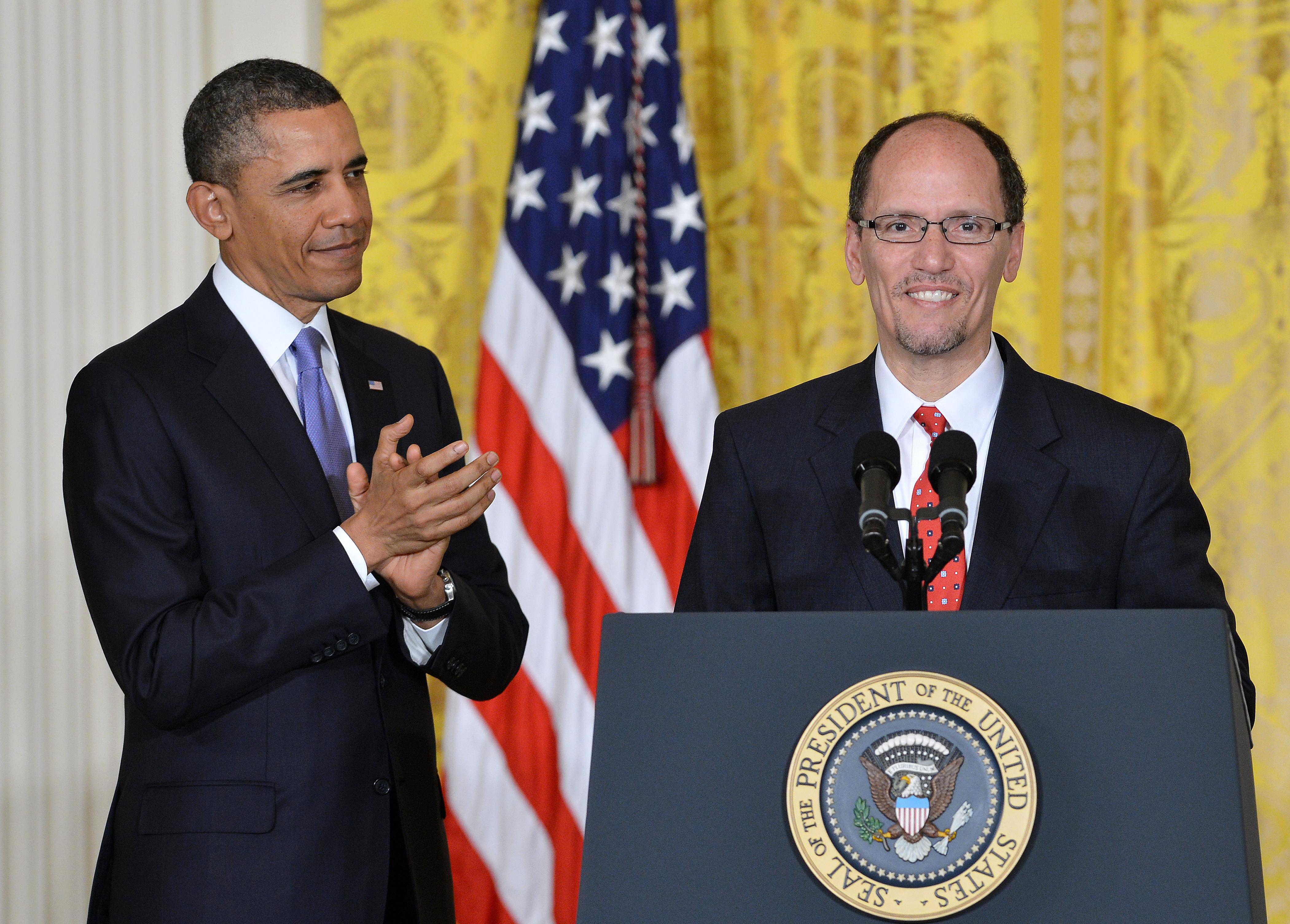The Republican case against Tom Perez’s nomination to run Labor can’t rest on the New Black Panther story alone. Those equipped with Google (or Bing!) can hear about the case, look it up, and learn that the whole shebang preceded Perez’s move to DOJ.
And that’s why we’re hearing more about Magner v. Gallagher. It was a simple case that started a complicated game of chicken, explained well here by Lyle Denniston. Steve Magner, supervisor of St. Paul’s Department of Neighborhood Housing and Property Improvement, brought a suit against developers, based on a “disparate-impact analysis” of racial bias. Under “disparate impact,” an outgrowth of the 1968 Fair Housing Act, statistical evidence can prove that bias—there’s no need to prove intent to discriminate. If the case got to the Roberts Court, most people expected “disparate impact” to be struck down, just as people now expect Section 5 of the Voting Rights Act to be struck down.
The Obama administration didn’t want that to happen. Egged on by local liberals, they—meaning Perez—got the case dropped. That drew the attention of Rep. Darrell Issa’s oversight committee, which scoured the DOJ for documents about the decision. It found no real controversy about Magner, but it did find this.
In early October, 2011, career attorneys from the Department’s Civil Fraud Section recommended that the United States join a lawsuit called Newell, brought by a private whistleblower charging that St. Paul violated the Federal FCA. The suit alleged that the City falsely certified it was using federal funds to create jobs for low income workers of all races, when in fact it was only focused on employing minorities. The memo authored by career Department attorneys characterized the City’s behavior as a “particularly egregious example” of false certifications. On October 7, 2011, the Department of Housing and Urban Development (HUD) concurred in the recommendation as did the U.S. Attorney’s office in Minnesota.
In the meantime, City attorneys and Mr. Perez began discussing a quid pro quo. The record over the next five months paints the picture of Mr. Perez’s commitment to closing the deal over the objections of career attorneys in the Civil Division who he does not even control. When the head of the Civil Division, Tony West, objected that HUD formally requested intervention, Mr. Perez replied he was “confident [their] position has changed.” Mr. West was not aware that Mr. Perez had already worked out an agreement with HUD.
As Mr. Perez labored to force a reversal, emails show career Department attorneys confused and frustrated. They “cannot imagine” what the Gallagher case has to do with Newell. “Weirdness” they call it. “This is ridiculous … have no control … why are higher level people making phone calls.” Notes from a meeting say it “looks like buying off St. Paul.” As the deal closes, St. Paul’s lawyers push for even more. Panicked attorneys email superiors to tell Mr. Perez to “make no more promises.”
Less confusing, right? In a friendly interview with Megyn Kelly, who tried manfully to cook something out of the New Black Panther scandal, Darrell Issa stumbles across a nice frame:
KELLY: So he steps in on the case and tries to convince the city of St. Paul, Minnesota get out, dump it, and the Supreme Court said they would take it. He said don’t do it, I don’t want to you continue with appeal. In exchange for you doing what I want you to do, I, as the DOJ will not intervene to help the citizens in other two big lawsuits that were also pending. And so, it appears that the deal was cut. Why is that a problem? Is that sort of horse trading done all the time?
ISSA: Well, it’s been called unprecedented in their own internal investigation, you remember, he flew to St. Paul to make this deal. He basically paid $180 million bribe by causing these cases to collapse.
The “internal investigation” seems to be a reference to the memos Issa himself dug up. (The case isn’t touched on in the IG’s report on the voting division.) The $180 million number came straight from Issa: the law allows for damages up to three times the amount of fraud, so, theoretically, if the government won, that could have flowed into the state’s coffers. In any case, that’s the new cudgel against Perez. Democrats aren’t impressed.
“Tom Perez has two problems,” Maryland Sen. Ben Cardin told me, sarcastically. “One is that he’s appointed by President Obama. To some people in the Senate, that’s a problem. Second, he’s taken on problems in Civil Rights, and now in labor, which causes problems for the Republican side.”
